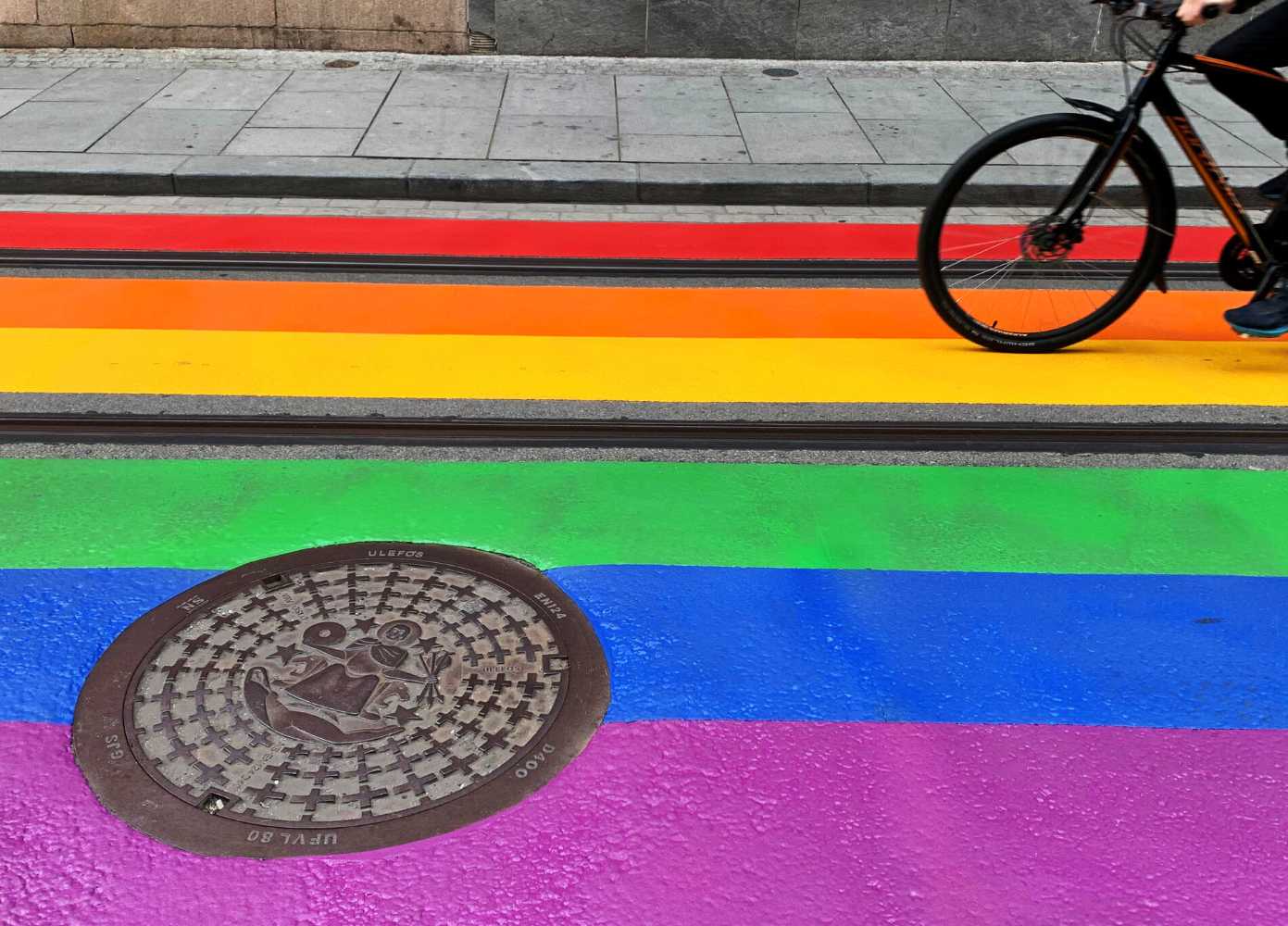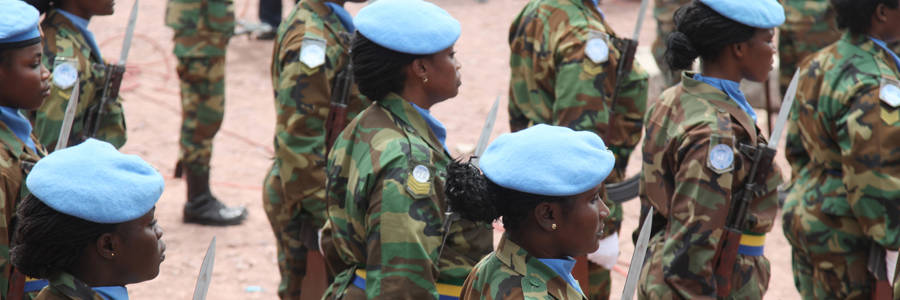Commemorating the 25 June 2022 terror attack against Oslo Pride: a chronology
Posted Wednesday, 25 Jun 2025 by Kristin Bergtora Sandvik & Ingunn Ikdahl

On the night of June 25, 2022, 19 shots were fired at people in the upper part of Rosenkrantz’s Street in central Oslo. Two people were killed, and several were injured, before civilians overpowered the perpetrator.
The shooting took place the night before the Pride parade, which was cancelled as a result of the attack. The attacker, Zaniar Matapour, was later convicted of aggravated terrorism. As we commemorate the third anniversary of the attack, investigations and legal proceedings against other suspects are ongoing.
The attack and its immediate aftermath
On Saturday, June 25, 2022, at 1:13 a.m., Zaniar Matapour opened fire at clubgoers in downtown Oslo. The London Pub is popular with the LGBTQI community and is located on Rosenkrantz Street, running adjacent to the C. J. Hambro Plaza. Due to the Pride week festivities culminating with the annual Pride parade the following day, the area was bustling with people celebrating and partying. There were more than 500 people in and around the London Pub, at the neighboring pub and restaurant Per på Hjørnet, and milling about on the streets in the area.
Armed with a submachine gun and a pistol, Matapour fired 18 shots before the weapon jammed. Footage from surveillance cameras shows how a single civilian runs towards and lunges at Matapour, momentarily tackling him. Matapour continues to move, firing one more shot before being subdued by a larger group of civilians at 1:16 a.m. Matapour was subsequently handed over to the police.
Two people were killed at Per på Hjørnet. At least ten others suffered gunshot wounds or other physical injuries. Many of those present have experienced significant mental health challenges, including anxiety and depression. When he was arrested, Matapour was carrying hundreds of bullets. Without the intervention of ordinary citizens – men and women, queer and straight, electricians, fishermen, social workers, rockers and academics – the number of killed and injured would likely have been significantly greater. In February 2024, 12 people were awarded the Crown of Norway's Medal for Heroic Deeds for their efforts to stop and disarm the attacker: A medal in gold for the advancing civilian, and 11 medals in silver were awarded to those who ended the attack.
In the immediate aftermath of the attack, the police deemed the threat situation as ongoing and unresolved. As a result, all Pride events, including the parade, were cancelled the following day. When a solidarity march planned for June 27 was also cancelled, a significant crowd still gathered. Pride-related events elsewhere in Norway were cancelled too. The cancellations were controversial because they deprived the LGBTQI community of the opportunity of coming together and the general public of the opportunity to show solidarity.
The Matapour-trial and ongoing proceedings against collaborators
Matapour was remanded in custody from June 25, 2022, until the criminal case began in Oslo District Court in March 2024. The trial lasted eight weeks, involving a large number of witnesses, including victims, medical experts, and terrorism researchers. Matapour was known to the authorities as a possible security threat, and the proceedings included evidence regarding the actions of the Norwegian Police Security Service (PST) and the Norwegian Intelligence Service (NIS) before the attack.
During the trial, it emerged that Matapour had sent an audio file with a pledge of allegiance to the Islamic State, a "bay'ah", to an individual later charged with complicity. The District Court concluded that the attack was directed at the queer community at large, aiming to kill as many individuals as possible and creating generalized fear. In July 2024, Matapour was sentenced to 30 years' detention for aggravated acts of terrorism with a minimum term of 20 years under Section 132 of the Penal Code. Matapour was the first person to receive a 30-years sentence. He is eligible for parole in 2042.
The verdict notes that Matapour had struggled with severe mental health challenges his entire adult life and that he also had previous convictions for violence. Whereas the psychiatrists disagreed among themselves on the appropriate diagnosis and the defense lawyer argued that Matapour was too ill to be considered criminally responsible, the court concluded that Matapour was sane and fully understood what he was doing before and during the attack.
Matapour was sentenced to pay over 100 million kroner in compensation to the bereaved and the more than 300 victims who had filed compensation claims. The injured parties were divided into four groups: relatives of the deceased, those who intervened to stop the attack, survivors with gunshot wounds or other physical injuries, and victims without physical injuries who were present in the area at the time of the attack.
Matapour appealed both the sentence and the compensation claims to the Court of Appeals, but withdrew his petition right before the appeals case was scheduled to begin in February 2025. Matapour is currently serving time in a high-security prison. While the Matapour-trial was a milestone in the quest for legal accountability and closure, it only represents the beginning of court proceedings related to the 25 June attack that will likely continue for many years to come.
Back in the fall of 2022, three people were charged with aiding and abetting terrorism. Two of these charges were later dropped due to a lack of evidence. The third charge was against a former gang criminal and well-known Islamist who was extradited from Pakistan to Norway in the spring of 2024, just in time to take the witness stand at the end of the Matapour trial. The criminal case against him is scheduled to begin in September 2025. Later, in 2023, another well-known Islamic extremist and supporter of the Islamic State was also charged in the case. At the time of writing, she remained detained in the Al Roj camp in Syria, and investigations against her are ongoing.
Access to compensation and legal aid
A poignant and unusual aspect of the legal process so far has been the inability to determine the exact number of victims. The 25 June attack took place in a crowded area where people were also passing through to other parts of downtown. Partly due to the actions and omissions of the police in the immediate aftermath of the attack but also due to a lack of legal information about victims' rights, procedural rules and compensation schemes, we still have no final numbers of who were there, who should be considered affected and who has rights to legal aid and compensation. In the weeks after the attack, several survivors applying to the Oslo District Court for a legal aid lawyer were refused. Some but not all of these individuals successfully appealed and were eventually granted the right to legal aid. During the Matapour trial, the number of victims who claimed compensation with the help of a legal aid lawyer increased. At the time of writing, more than 80 additional individuals have applied for compensation. These claims should have been adjudicated in conjunction with the Matapour appeals case. At present, it remains unclear how they will proceed.
Evaluating the government’s response
Several inquiries have been conducted into how the authorities acted before, during, and after the attack. In August 2022, the National Police Directorate and the Norwegian Police Security Service (PST) established an independent evaluation committee. The committee was to assess “1) the course of events leading up to the mass shooting in central Oslo on 25 June 2022, and 2) the PST and the police’s handling of the incident”.
The committee’s evaluation report was presented in June 2023. The report contained a comprehensive review of the incident, its course, and the handling of the incident afterwards. The report found, among other things, that the PST had received a notification from the Norwegian Intelligence Service a few days before the attack. The committee noted the possibility that the attack could have been prevented if the PST had opened a ‘preventive investigation’ against Matapour in the months leading up to the attack, or if the notification PST received from the Intelligence Service had been handled differently. While the evaluation found the operational response of the Oslo Police to be adequate and appropriate, crisis communication was poorly managed. In particular, the cancellation of the solidarity march on 27 June potentially undermined the freedom of assembly.
The evaluation committee's mandate did not include the actions of the Intelligence Service – a task which was assumed by the Parliament-appointed Committee for Intelligence Oversight (EOS) in February 2023. The EOS-report, which was submitted to the Parliament in January 2024, focused on two main issues: whether the Intelligence Service had in any way provoked the attack and whether the Intelligence Service had "complied with its obligation to share all relevant information with the PST promptly before the attack". No criticism was issued on either point. The Matapour verdict from the District Court concludes that the attack would have occurred regardless of the contact between the Intelligence service and the individuals suspected of being involved in the attack.
Both reports were eventually discussed by the Parliament’s Standing Committee on Scrutiny and Constitutional Affairs, which subsequently hosted several public and closed hearings. The Committee expressed “deep gratitude to individuals who showed extraordinary courage and energy when they overpowered the perpetrator before the police arrested him.” The Committee was also critical of the dialogue with the queer community after the attack and stressed the importance of working systematically to build trust between the queer community and the authorities.
After June 25th: societal responses
Both the criminal conviction against Matapour, the report from the independent evaluation committee and the Parliament’s statements on the case underlined the severe consequences of the attack for the individuals who were affected as well as for the queer community. In response, the "June 25th Support Group" was founded on March 6, 2023, at the initiative of survivors. The purpose of the Support Group is to provide support to those affected, disseminate information, and conduct public outreach. The Support group works to build and spread knowledge about what happened on June 25th. It is also active internationally.
In the aftermath of the attack, many of those affected have reported challenges with mental health, difficulties in getting enough help, and an increased sense of insecurity. In May 2024, the Parliament unanimously decided to request the government to ensure that relevant follow-up research was initiated on those affected by the attack on June 25. A study examining the well-being and health of victims and the societal consequences was published in mid-June 2025.
Finally, as a political event the June 25 attack is remembered both in the context of domestic terror attacks and in the context of terror attacks against queer communities globally. June 25 is one of several terrorist attacks since July 22, 2011. At the same time, the legacy of the attack also shapes urban space in Oslo: in early September 2022, the part of Rosenkrantz’s street where the shooting took place was painted in rainbow colors. In the fall of 2023, the Oslo City Council decided to establish a permanent memorial for June 25. Increasingly recognized as an important part of our shared national history, the attack and its impact have also been addressed in stage productions, music, short films, radio documentaries, books, and in the visual arts.
- Kristin Bergtora Sandvik is a Research Professor at PRIO and and Professor of Criminology and Sociology of Law at the University of Oslo
- Ingunn Ikdahl is a Professor of Public and International Law at the University of Oslo
- The Norwegian language Encyclopedia entry this text is based on can be found here










